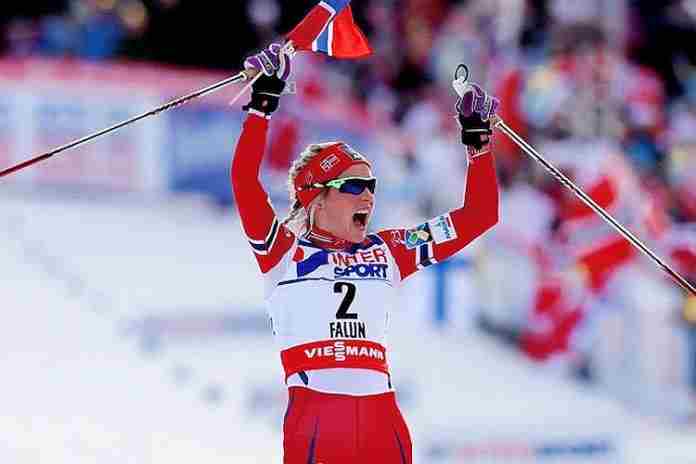The International Olympic Committee’s announcement last week that the bid from the Queensland region of Australia – centered around Brisbane – was now “targeted” as the first-in-line choice for the Games of the XXXV Olympiad in 2032 was a surprise to a lot of people.
It shouldn’t have been.
IOC chief Thomas Bach told reporters during his online news conference that this selection was the outcome of the enormous changes made in the Olympic bid process, which were badly needed:
“We had to face there a situation where we could see that because the candidates were put against each other in this kind of [voting] contest, that we had exponentially less and less candidates because the candidates were being eliminated or losing a vote could not justify towards their community to come back with another candidature right after. …
“And these were the reasons why we said we have to change this procedure and, there again, to follow the examples from the business world or other sports events organizers where you avoid this kind of situation, where one candidate is attacking the other, and ‘I am better here’ and ‘I am better here and the best’. I don’t need to explain [to] you; you have experience enough, having followed all these procedures, but I can understand that this is interesting for journalists, for media to follow such a situation. But you also know from this work that this was not the best procedure, neither for the future of the Games, nor for the reputation of the IOC.”
So what happened? A bid effort which was developed with serious intentions, moved forward with significant support from the National Olympic Committee in its country and all levels of government and which pushed all of the IOC’s hot buttons has the opportunity to land the 2032 Games.
Good for Queensland and Australia. Hard work paid off. Sloth, talk and speeches did not. The IOC noted in its announcement that:
“The main reasons why Brisbane 2032 was proposed for the targeted dialogue are:
● “The very advanced Games concept, which is fully aligned with Olympic Agenda 2020 and using 80 to 90 per cent existing or temporary venues.
● “The venue masterplan, which has already been discussed with International Sports Federations and the International Paralympic Committee. …
● “The existing and planned transport infrastructure and experience in traffic management, which can adequately meet the demands of the Olympic Games and were successfully implemented for the Commonwealth Games in 2018.
● “The existing hotel accommodation inventory, which already meets Games requirements.
● “Strong support from all three levels of government, as confirmed on several occasions by highest-level representatives from the City of Brisbane, the Southeast Queensland Council of Mayors, the State of Queensland and the federal government.”
There was plenty of head-shaking from other potential bidders for the Games who were caught flat-footed by the Queensland selection. Jurgen Kessing of the German Athletics Federation (DLV) asked the pertinent question:
“I think we have to ask ourselves how we can get into pole position with possible future Olympic bids.”
They, and others had their chance; they talked while Queensland walked. Norwegian IOC member Kristen Kloster Aasen, chair of the Future Hosts Commission, told reporters:
“In December, we asked the interested parties for a full update on their status and had discussions with all of them. The Commission gave the opportunity of a presentation and discussion to the interested parties that were in continuous dialogue and this resulted in meetings on the 3rd, the 8th and 9th of February this year. The Commission has also engaged with those NOCs which have chosen not to be in continuous dialogue at this stage.”
The German NOC indicated it was not ready to be part of the “continuous dialogue.” The disconnect between one or more potential German bidders and their National Olympic Committee eliminated them. Same for other bids which were more an idea than a reality, in Hungary, Indonesia, India, Korea and others. They were asleep while Queensland was awake, and its bid – more than two years in the making – won after originally targeting 2028, then being disappointed that Los Angeles was awarded that Games. Queensland didn’t whine, they got on with trying to win for 2032.
This is business. The first mover has the advantage, but has to be highly credible. Queensland did that while others talked about it. That’s the future.
Which brings us to Salt Lake City, Utah, which staged a brilliant Winter Games in 2002 and is ready to do so again. It already formed a bid committee a year ago, after being designated as the bid city for the United States by the U.S. Olympic & Paralympic Committee in 2018. In addition to having existing venues, accommodations and infrastructure in place, it also has the advantage of multiple veterans of the 2002 organizing committee deeply involved, including former chief Operating Officer Fraser Bullock, and Colin Hilton, now the head of the Utah Olympic Legacy Foundation, which cares for many of the Olympic venues, continuously in use since 2002.
Salt Lake City is in line to be awarded a Winter Games, probably for 2034, with the only question on how to coordinate the timing to follow the Games of the XXXIV Olympiad in Los Angeles in 2028.
The IOC is also moving forward. The introduction of its “Agenda 2020+5” provides clear, new opportunities for countries and regions to show off their attributes in partnership with the IOC in future Olympic qualifying competitions, a clear gateway to future Olympic bids without the expense of a pricey continental Games or a Youth Olympic Games. The “Agenda 2020+5″ recommendation 6 explanation includes:
“Depending on the definition, there are hundreds or even thousands of events which act as Olympic qualifiers. However, today, there are very few opportunities to connect these events with the Olympic Games through branding and other initiatives. The Olympic and OCOG brands effectively have no visibility and therefore the Road to the Olympic Games is not as visible as it should be.
“An opportunity therefore exists to create additional associations between the Olympic Games and Olympic qualification events. This would have benefits for all parties – the Hosts of the events, the NOCs / NFs of the athletes, the IFs governing the events and the athletes themselves. …
“New types of qualifying events could also be explored. Beyond the individual stand-alone events, some multi-sports qualification events could be developed by the IOC in collaboration with IFs, which would help streamline the qualification calendar and also potentially add value for the Hosts, IFs and athletes involved. These events, grouping sports by type or by culture (e.g. combat sports, urban sports), could also serve to build excitement for the Olympic Games.” (Emphasis added)
There is little doubt that the “2020+5″ package will be passed by the IOC Session later this month. Potential Olympic bid cities and regions should then be calling on Kloster Aasen and her Winter Games Commission counterpart, Octavian Morariu (ROU), about these events – which don’t even exist yet – and how they can help create, develop and stage these programs; one good starting point is just to catalog all of the seasonal World Cup events already staged in a city, region or country!
(The IOC’s concept is hardly a new idea, either, especially in Germany. Berlin combined 10 national championships into a single week in 2019, called “Die Finals,” and drew 178,000 spectators!)
The 2032 Games should be in Queensland, but nothing is sure until the event is officially awarded, perhaps in 2021. The “losers” may be sulking now, but the IOC’s new process saved them the embarrassment of explaining how millions of publicly-provided dollars, euros or other currency were spent on nothing after losing an election.
Queensland is now the standard and Salt Lake City is not far behind. As the Sugar Hill Gang famously advised in 1981:
Tonto, jump on it, jump on it, jump on it
Kemosabe, jump on it, jump on it, jump on it
Custer, jump on it, jump on it, jump on it
Apache, jump on it, jump on it!
Rich Perelman
Editor
You can receive our exclusive TSX Report by e-mail by clicking here. You can also refer a friend by clicking here, and can donate here to keep this site going.
For our 649-event International Sports Calendar for 2021 and beyond, by date and by sport, click here!

























